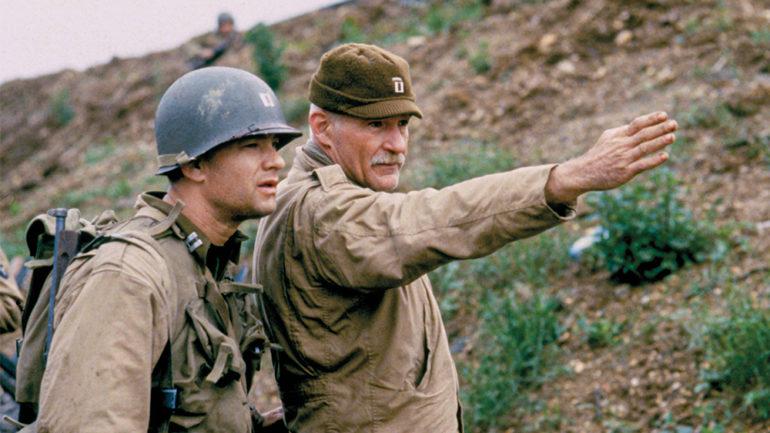Meet the Military Adviser Who Helped Bring Realism to ‘Platoon’ and ‘Saving Private Ryan’
By James C. Udel
LOS ANGELES (Variety.com) – Military adviser Dale Dye may have done more to help Hollywood deliver an accurate portrayal of war than anyone else in the business. From “Platoon” and “Saving Private Ryan” to “The Thin Red Line” and his most recent work, 2019’s “The Last Full Measure,” his attention to detail — along with his boot camp methods for teaching actors to be soldiers — share a singular vision: realism.
A veteran of three tours in Vietnam, Dye was a Marine correspondent awarded the Bronze Star for heroism in action. He’s equal parts storyteller, military historian and psychologist, and his performance prep goes where others fail to tread: into actors’ heads.
Born in 1944, in Cape Girardeau, Mo., Dale tagged along with his father, a liquor salesman, as he stocked local bars. Hearing war tales from the clientele, the youngster became fascinated with the military. After the Naval Academy turned down his application, he enlisted at age 20 in the Marines, rising to the rank of captain after the war.
Retiring from the Corps in 1984, he headed to Los Angeles with a vision — paying tribute to those who served by making films about war that reflected reality.
He collected a battalion of no’s before Tobe Hooper said yes, signing him on for “Invaders From Mars” in July 1985. He learned production basics in the process, but once the invasion was over, the unsuccessful battle to find more work left him close to quitting the business.
His big break came after he read about Oliver Stone’s “Platoon” in Army Archerd’s column in Variety. Prying Stone’s phone number from a pal (with the help of a bottle of scotch), Dye got a meeting with the director. Though political opposites, the two Vietnam vets bonded over the shared belief that war pictures lacked the believability that months of military training instill.
Dye devised a boot camp for the film’s actors, including Charlie Sheen, Johnny Depp, Forest Whitaker and Kevin Dillon, running them through rigorous workouts, weapons drills, full-pack marches and tent living, complete with K-rations. “I’m one of the few guys Oliver is willing to let behind his eyes,” Dye says. “He talks to me in a shorthand, and I get it.”
Gigs soon followed with other top directors in the late 1980s and ’90s: Brian De Palma (“Casualties of War”), Adrian Lyne (“Jacob’s Ladder”), Michael Mann (“The Last of the Mohicans”), Paul Verhoeven (“Starship Troopers”), Steven Spielberg (“Saving Private Ryan” and “Band of Brothers”) and Terrence Malick (“The Thin Red Line”).
But the work didn’t always come in war and action films. Dye served on Robert Zemeckis’ “Forrest Gump,” Barry Levinson’s “Wag the Dog,” Roberto Benigni’s “The Tiger and the Snow” and Ben Stiller’s “Tropic Thunder.”
Stone, who has collaborated with Dye on six films, found the adviser to be adept in several areas. In “Born on the Fourth of July,” he portrayed an infantry colonel who made Tom Cruise dig foxholes. In “Natural Born Killers,” he was put in charge of “violence and mayhem.”
Hearing industry buzz of a possible “Saving Private Ryan” prequel about paratroopers on D-Day, the 74-year-old film veteran is stoic but hopeful. “If the call comes,” he says, “we’ll be ready.”

